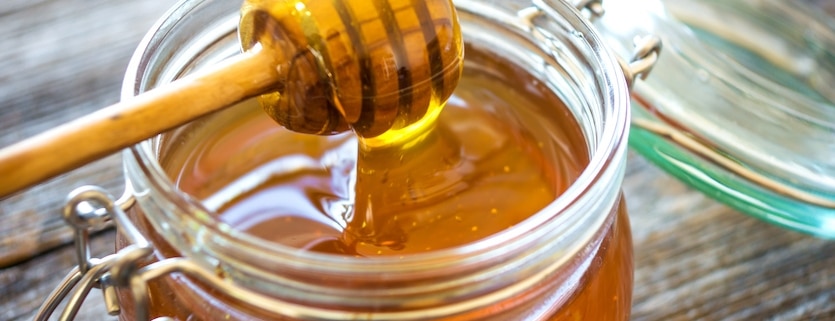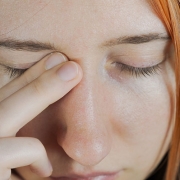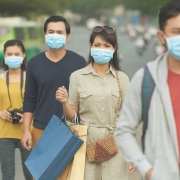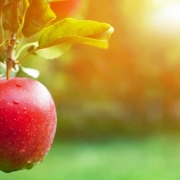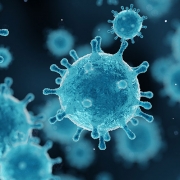Explore the Facts About Eating Local Honey to Help with Allergies
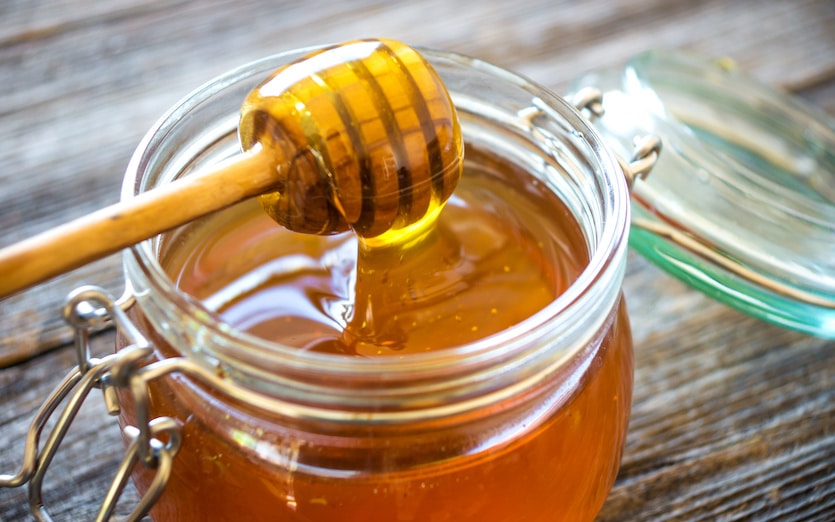
Spring’s new growth and beautiful flowers brighten the world after long months of colder, wetter weather. But with that flourishing flora comes something else—pollen and seasonal allergies.
For many people, they can feel the moment the world around them shifts from winter into spring. Their eyes become watery and itchy. Their nose runs or stuffs up. Sneezing becomes just as common as laughing. When these symptoms pop up, it’s time to reach for the allergy medication so you can get through the day in one piece. But have you ever been told to reach for local honey for seasonal allergies instead?
Honey, particularly products harvested locally, is often suggested as a natural way to help you deal with allergies when spring comes around.
But does honey actually help with seasonal allergies? To answer that question and separate myth from fact, let’s look at how allergies work, how honey is made, and where the two might intersect.
What are Seasonal Allergies?
First, you have to understand what happens in your body when spring comes around. You can go in depth about seasonal allergies with this helpful story. But here’s a brief overview:
Imagine your body is a thriving 24/7 office building. All the busy workers inside the building are your cells. Some cells are in the department responsible for moving your muscles. Others are in departments that make sure you have the energy to go about your day.
The work your cells do is very important—it keeps you alive. But there are many threats inside and outside your body that can cause problems.
In a building, someone could break in, or internal issues, like a flood from a burst pipe, can pop up. In your body, you can cut your skin or breathe in foreign particles that can cause a variety of problems.
To protect you from potential threats, you have a natural security system—your immune system. This is like the security and on-site first responders in the office building. These immune cells are always on patrol. They keep an eye out for anything that they think might hurt you. When they find a potential threat, they mobilize quickly to contain and remove it.
However, they occasionally come across particles that are relatively harmless—like pollen from blooming trees and flowers—and your security system overreacts. Your immune cells trigger alarms throughout the entire building of your body, temporarily disrupting everyone’s work with sneezing, watery eyes, and a runny nose.
When the threat is taken care of, security posts pictures of the intruder so your cells can remember what it looks like for next time. And that’s why your seasonal allergies happen at predicable times.
Using Immune Memory to Your Allergy Advantage
When your immune system comes across pollen again, your immune cells recognize the pollen from all the pictures it took and posted up the last time they encountered one another. That memory allows your immune system to respond faster and better every time it encounters the familiar threat, because it learned how to best deal with it last time.
This system works great for threats like viruses or bacteria. These threats don’t usually happen every day, so the immune system doesn’t become desensitized to seeing the same problem repeatedly.
But imagine if the same problem kept happening every day. Most likely, the immune cells would stop responding as aggressively. Eventually, they might even learn to just live with it like a busted ceiling tile in the break room or a tiny leak in the roof whenever it rains.
When this conditioning is done intentionally, it’s called immunotherapy. These techniques can be used to help train your body to grow comfortable with having particles like pollen around, so your immune system learns to live with its presence and ignore it.
This is how allergy shots work. By giving you a concentrated dose of particle pieces that you’re allergic to every few weeks or months, you can train your immune system to desensitize itself to the presence of that allergy-causing substance.
How the Properties of Honey Relate to Seasonal Allergies
Now that you have the gist of seasonal allergies, let’s look at the next piece of this puzzle—honey.
Honeybees produce the sticky substance by gathering a liquid called nectar that is produced by flowering plants. The bees store nectar in an extra stomach in order to carry it back to their hive.
While the nectar is hanging out in the stomach, it mixes with other items the bee has eaten. This changes the chemical makeup of the nectar so it’ll last longer, like preserving fruits to make jam that can last longer on your shelf or in your fridge.
Once the bees return to their hives, they pass the preserved nectar from their stomach to another bee, who stores it in their extra stomach to pass on to another bee. The nectar passes from bee to bee until it reaches its final destination—a honeycomb.
After the last bee in the chain coughs up the nectar into the honeycomb, the bees in the hive use their wings to help any extra liquid in the nectar quickly evaporate so the honeycomb can be sealed up for storage. Now the bees have a sweet food storage to dig into during winter months, and humans have a sugary addition to their diet that may also help with seasonal allergies.
Now it’s time to circle back to the theory of using honey for seasonal allergies works. Basically, it goes like this:
When bees are gathering nectar from flowers they pick up pollen, which may end up mixed into the honey. So in theory, if you eat a lot of this pollen-containing honey, your immune system will start acclimating to seeing the pollen in your body. Once your immune system sees this once-alarming substance so many times, your immune cells stop responding to it.
With no immune cells sounding an alarm, your seasonal allergy symptoms aren’t triggered, and you can breathe easier.
But Does Local Honey Actually Help with Seasonal Allergies?
First, the bad news. There’s no guarantee the honey you eat has any pollen in it. Additionally, there are a lot of plants out there that produce pollen, and not all of them have flowers that are the preferred targets of honeybees.
In fact, honeybees usually prefer plants that aren’t commonly considered the main sources of pollen that commonly triggers seasonal allergies.
Other bad news: if someone has recommended you eat honey for allergies, they probably have told you that it needs to be local honey. That’s because different areas have different plants. If you eat honey with pollen from Alaska and you live in Arizona, the pollen in the honey will be very different from the particles hanging in the air around your house.
In many cases, local honey is also sold relatively unprocessed. That means there might be bee parts, bee venom, or bacteria. If you’re allergic to bees themselves, eating this type of honey might cause its own allergic reaction and make your allergy problem even worse.
There is Some Good News About Honey
Don’t toss your honey out just yet. Eating honey has many other benefits that can help you optimize your experience during the season. For instance, it can help soothe a cough, especially when used to sweeten tea instead of using sugar. Just don’t give it to kids younger than a year old, because it can cause a life-threatening illness called botulism.
There also might be some potential of using honey at high doses alongside normal allergy treatments to help manage the symptoms of seasonal allergies. There are few studies on this topic, and they often provide mixed results. But one small study found that large doses of unprocessed honey seemed to help sufferers of seasonal allergies deal with their symptoms, at least for a little while.
Of course, you’d probably need to eat a lot of honey. In that particular study, participants ate at least 50-60 grams (about two and a half tablespoons) of unprocessed raw honey every day for a couple of months.
What’s the Final Verdict?
With all that said, it’s time to answer the question—does eating honey help with seasonal allergies?
Well, it can certainly help you manage symptoms like a cough. And the theory about pollen in the honey makes sense. But, for now, it’s best to reach for the allergy medications and limit your time outdoors until pollen season has ended for the year.


